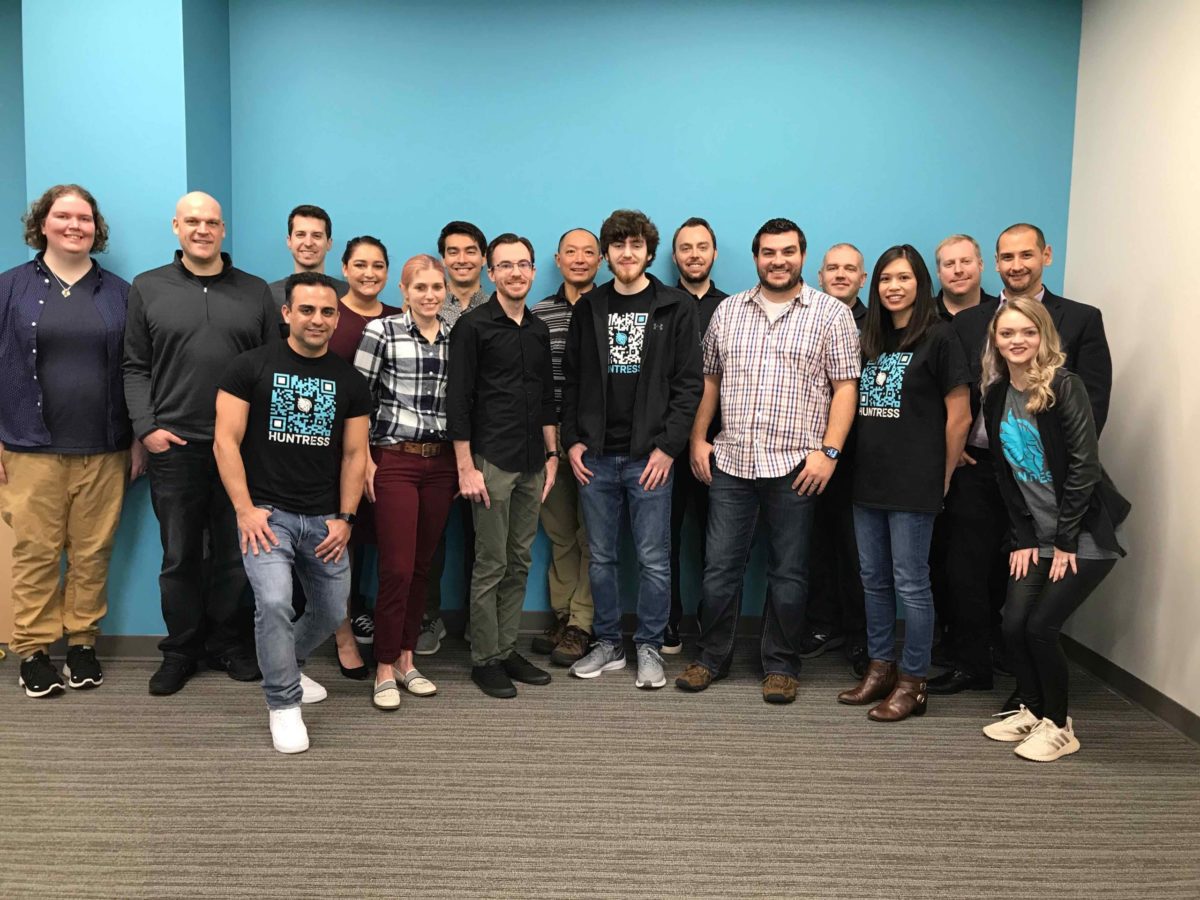Founded by a trio of former cybersecurity operators at the Fort Meade-based National Security Agency in 2015, Huntress started as what CEO Kyle Hanslovan called “a cute idea.”
The Ellicott City-based company has since grown into a business that reaches 16,000 small and medium-sized businesses in North America.
This week, the company announced that it raised $18 million in a Series A funding round led by San Fransisco-based cybersecurity venture fund ForgePoint Capital. The firm itself made headlines Wednesday after closing on a new $450 million fund.
In a statement, ForgePoint VP Ernie Bio said the firm was “impressed by the Huntress team’s domain expertise, relentless drive and passion to protect all customers from today’s advanced cyberthreats.”
It started from Hanslovan’s own work on how attackers gain “persistence” to remain in IT systems over long periods of time. Along with cofounders Chris Bisnett and John Ferrell, Hanslovan set out to test new techniques that could apply to this problem. They thought it could be a side project at first.
After testing with the NSA and a stint in a cohort of Northern Virginia cybersecurity accelerator Mach37 in 2015, the trio recognized how the tool could help find threats.
They also found a key problem in the market: small and medium-sized businesses often lack advanced cybersecurity tools. But marketing to these businesses one by one presents a challenge, as they are by nature small. To reach them, Huntress designed a model where the product could be offered by outsourced IT firms, which are known as managed service providers. The product is designed to allow junior technicians that these MSPs employ to use Huntress.
The aim: “Somebody with no tech acumen could use this and be a cyber rockstar,” Hanslovan said.
Huntress CEO Kyle Hanslovan likened the product, which can be deployed via the cloud, to an easy button for cybersecurity.
Hanslovan likened the product, which can be deployed via the cloud, to an “easy button” for cybersecurity. While cybersecurity incidents do happen, Huntress aims to deal with them quickly. It finds whether an attacker made it past preventative layers, and tells the technician. Then it lays out a “playbook” of actions to take that will handle the threat, and asks if they’re OK with that.
“The Huntress team is the one hunting down all of the ways that hackers get in,” Hanslovan said. Then, the company supplies technicians with info explaining “how to clean it up.”
As they kept going over nearly four-and-a-half years, Hanslovan said they remained scrappy, and raised $1.75 million along the way from investors including Gula Tech Adventures, the venture firm of two of Columbia-based Tenable’s cofounders. It led to traction. The company ended 2019 with $5.2 million in revenue.
It got the attention of investors, and now Huntress is poised to grow. Hanslovan said plans are in place to triple the size of the 20-person team this year, as they expect those hires to build new product features and expand in sales and marketing.
For Hanslovan, there’s a particular point of pride in being a company from this region that raised Silicon Valley levels of capital.
“I know we have the talent,” he said.
At NSA and other government institutions like Johns Hopkins’ Applied Physics Lab in Laurel, top cybersecurity operators are working on techniques that are often ahead of the private sector. On a week that Fulton-based Enveil secured a $10 million Series A that also made headlines, there are more signs that the talent is showing the grit to create new commercial markets, as well.
Before you go...
Please consider supporting Technical.ly to keep our independent journalism strong. Unlike most business-focused media outlets, we don’t have a paywall. Instead, we count on your personal and organizational support.
Join our growing Slack community
Join 5,000 tech professionals and entrepreneurs in our community Slack today!

The person charged in the UnitedHealthcare CEO shooting had a ton of tech connections

From rejection to innovation: How I built a tool to beat AI hiring algorithms at their own game

Where are the country’s most vibrant tech and startup communities?


